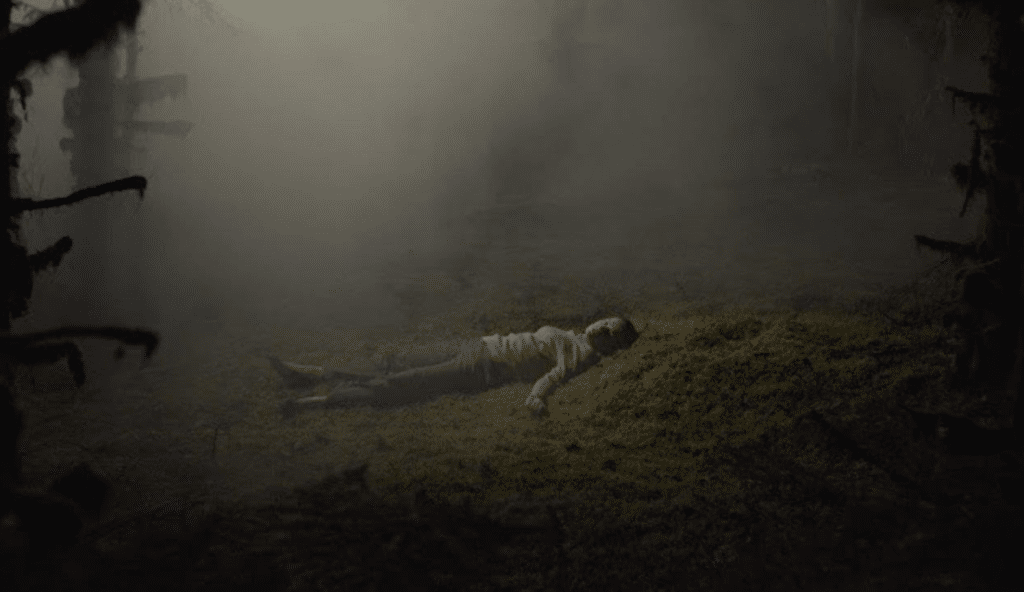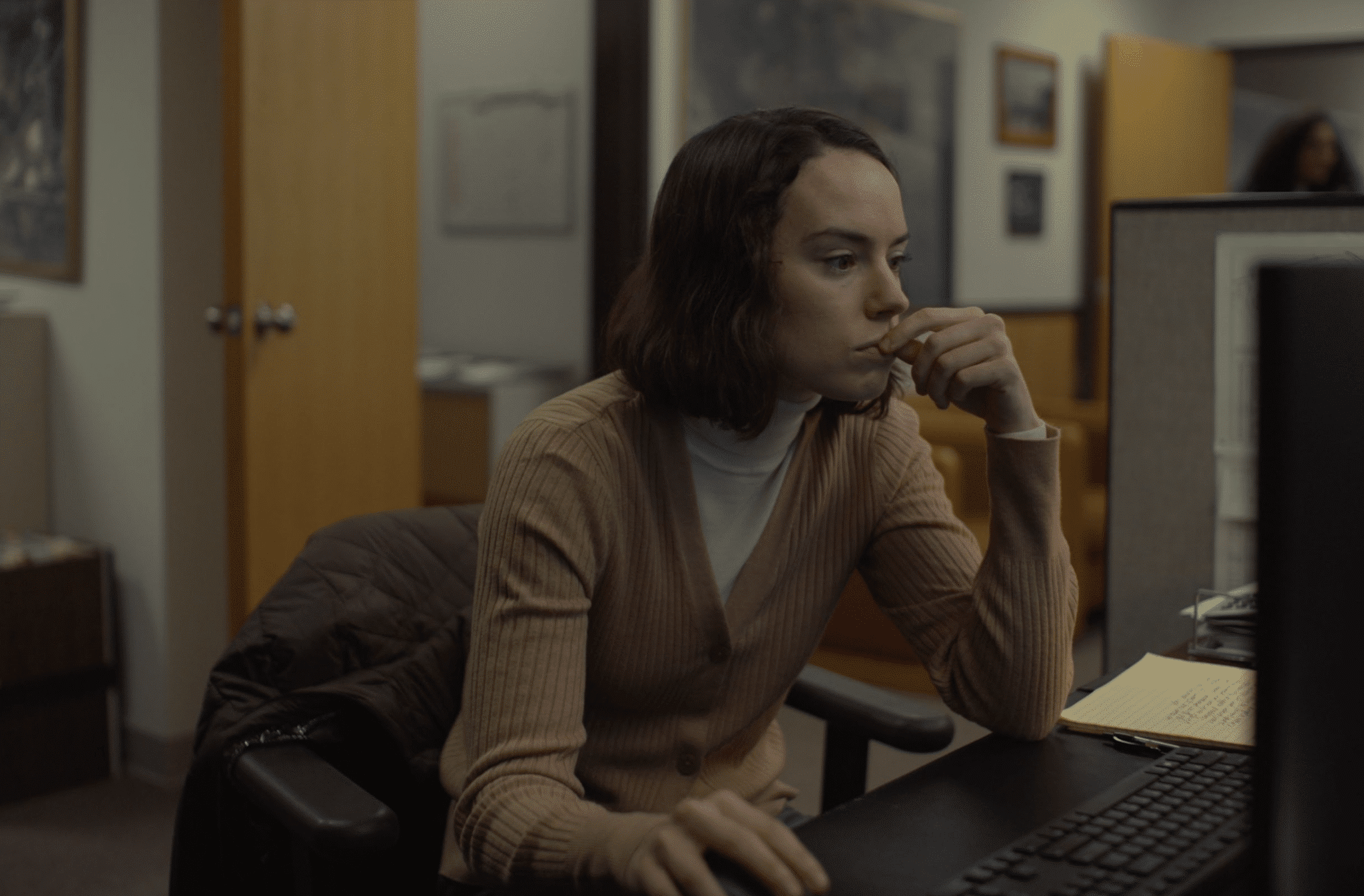
There’s a shot of fallen fruit rotting in a gutter as Sometimes I think About Dying (2023) opens, and not to get into a scene-by-scene analysis of the film, but this image symbolises a lot about the story to follow. In a picturesque but doubtlessly dull coastal town, we meet Fran (Daisy Ridley). Fran is a young woman with an office job (we never find out what the office does, and it doesn’t matter). When she arrives at work each day, it barely generates a flicker of recognition in her colleagues. As harmlessly inane as their workplace banter is, it excludes her – not maliciously, but she blends so colourlessly into the background that she’s barely visible. Work takes up most of her time; when she’s not in the office, she’s at home alone.
The only break from this routine which she’s selected for herself comes via moments – dreams, or fantasies – about her own demise, usually imagined as grand tableaux: towering, picturesque deaths, or dramatic, colourful deaths – death by snake is a good one. She still blends in as a dead body, mind, but it mostly makes a change from the settings she’s in on a day-to-day basis. Outside of these little moments, work continues, with one difference: a long-serving member of the team, Carol (Marcia DeBonis) retires, and her colleagues throw a little party. As is typical, Fran hovers somewhere between involved and uninvolved in these festivities. Everything here, by the way, is really well observed, right down to the workplace murmur; every character is plausible, too.
After the cake and the cards, the team gets to meet her replacement, a man named Robert (Dave Merheje). In a professional capacity, Fran and Robert begin to interact (though Fran’s more comfortable with Microsoft Chat than human conversation, as much as she’s just as perfunctory on Chat as with chat.) Perhaps it’s because Robert is a self-confessed workplace rookie, or perhaps it’s something deeper, but he takes an interest in Fran. He even asks her to go to see a film with him. Tentatively, they begin to get to know one another.
The gradual – though it’s important to say, not-uncomplicated – blossoming of Fran as a person is a joy to watch here. Seeing the same thing happening with Robert is just as important, as the film captures a naturally gregarious person being curtailed by being ‘the new boy’, and he’s the new boy for other reasons which impact upon his sense of self. It’s a situation which will be familiar to many people; watching what Merheje does with it is impressive. The film is also able to capture that golden moment in time when someone reaches out, wanting to make a new connection; this is, sadly, a rare enough thing once people get out of their twenties. But as Fran begins to change, those nagging moments remain: what do these visions of death mean now? Is she really equal to this sea-change in her life?
The film’s subtle script perfectly captures the little moments of awkwardness which have largely come to define Fran; the way in which the camera picks over her matching gestures underlines this sense of nervousness, of how it feels to be excluded. There’s no simple in-group/out-group here, however, only glimpses of some people who have learned to become that little bit more proficient in social situations. Everyone’s trying to navigate through, even if Fran’s quiet horror at being asked to do the unfamiliar is often our focus. The way in which Ridley shows us someone keen to get away, but also curious about whether or not it might turn out alright, if she stays? It’s an inspired piece of acting.
And whilst this process is tough, often unbearably so, this is never a film without hope. You might be forgiven for thinking that – with a title like Sometimes I Think About Dying – this is going to be one of those dark nights of the soul type films, where someone is unceremoniously hammered into the ground for their shortcomings. It’s never that: even the opening music sounds hopeful; the town is quiet but beautiful, and colour starts to seep into proceedings as the film progresses. Shots are composed beautifully too, right down to Fran’s death fantasies, which themselves are pieces of art. There’s no unequivocal unhappiness here. It’s also impressive that the film itself references film, providing an important hint of a message on the periphery; Robert is a huge film fan, and he likes them because they invite him to understand other people’s stories. This gentle genius of a film is careful and considerate throughout; it’s a quiet, but nuanced and engaging look at other people’s stories.
Sometimes I Think About Dying (2023) featured at the Fantasia International Film Festival.
